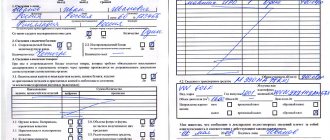Since modern Germany is the largest tourist, business and cultural center, hundreds of thousands of people cross its borders every day. All of them must comply with customs rules determined by European and German law with their characteristic features. Controlling functions in this area are performed by German customs: Germany calls the Federal Customs Service as Bundeszollverwaltung or Zoll. Due to the openness of European borders, German customs rules have their own specifics.
Zoll: basics of German customs
On January 1, 1993, the EU began to operate a single internal market. Its result was the elimination of customs borders between the member countries of the association. Europe has been moving towards this for a long time, having created the European Customs Union back in 1968: it abolished import customs duties on the movement of goods and services between member countries and established a single tariff for goods imported from third countries.
50 years after the start of the European Customs Union, it is still based on a key principle - the principle of the “four freedoms”: freedom of movement of goods, services, capital and labor.
This key principle predetermined the specifics of the work of the customs service, which went far beyond the banal collection of customs duties and acquired a multifaceted character. Today German customs:
- collects not only customs duties and excise taxes on tobacco, electricity and other excisable goods;
- ensures uninterrupted movement of goods and services between countries;
- fights illegal migration and illegal employment;
- maintains conditions of fair competition;
- fights organized crime, arms smuggling and trafficking, agricultural fraud and terrorist financing;
- promotes environmental protection;
- protects public order and safety;
- administers car tax;
- exercises control over compliance with intellectual property rights, and so on.
To perform such functions, the Bundeszollverwaltung uses modern methods and forms of customs supervision.
Within the customs service there is a three-level system, the foundation of which is a three-structural level: it includes 43 customs houses, 288 customs posts, 28 commissariats, 8 operational customs offices, 4 federal cash offices for receiving and administering customs payments and 5 laboratories for conducting complex examinations.
Operating in a 30-kilometer “border zone” (§14 ZollVG), in order to comply with the principle of legality, the customs service is vested with powers significantly exceeding those of the police. To identify offenses, customs officers have the right to conduct searches of cars and premises, have the right to inspect suspected persons and carry out other activities related to the identification of violators.
The service has its own operational search department, a canine service and paramilitary security that fights customs crime.
With all this, customs officers practice a liberal approach based on the principle of trust: citizens are always invited to voluntarily declare imported property. But due to the virtual absence of borders, not everyone when entering Germany follows this rule.
And in vain - Bundeszollverwaltung employees are on alert almost around the clock: they quickly identify violators of the customs regime, applying tough measures to them in accordance with the law. Therefore, we propose to dwell in more detail on the main border and customs rules that a foreigner must comply with when entering Germany.
Border crossing rules
As we know, Germany as a European country is part of the Schengen area, in which there are no physical borders between countries. That is, when entering Germany by land, for example, from the territory of the Czech Republic or the Netherlands, travelers will not see the usual checkpoint and border guards with dogs. However, this does not mean that right behind the demarcation signs there will not be a customs or police patrol waiting for you, who are authorized not only to check documents, but also to search the vehicle.
In any case, no matter how Turini dosts from Russia get to Germany, they will definitely have to cross the border of the Schengen zone. By car this can be the Polish or Latvian border; when traveling by air it is the German border directly at the airport.
Wherever Russians cross the Schengen border on their way to Germany, the same entry requirements and rules await them.
The conditions for crossing these borders for citizens of third countries (in particular, Russia) are determined by Art. 6 of the Schengen Borders Code (EU Regulation 2016/399), according to which in order to enter they must:
- have a valid travel document - we are talking about a foreign passport or other document for traveling abroad, which was issued less than 10 years ago;
- have a valid entry visa - this can be either a Schengen multiple visa issued by one of the EU countries (preferably the one through which the tourist enters the Eurozone) or a German national visa category D;
- justify the purpose of entry and the availability of funds for the stay: as a rule, a hotel reservation, return bus/train/plane tickets and a bank statement are sufficient. In addition, according to Appendix I to the code, these can be various types of invitations from legal entities, invitation cards to fairs and congresses, documents confirming the route, registration records as a participant in certain events, and so on;
- not be included in the Schengen Information System (SIS) as persons undesirable for admission to the Schengen territory.
In addition, to stay in Germany you will need a health insurance policy valid in the EU, a driver's license (in case of traveling by car or renting one), a bank card, a tourist package or voucher and other documents depending on the situation. They can be checked not only at the borders of the Schengen zone, but also directly in Germany.
The procedure for customs clearance in Germany
The basic customs rules in Germany for citizens and individuals are no different from the customs rules in other EU countries. They are defined by the EU Customs Code (EU Regulation No. 952/2013) and by-laws clarifying it, such as European Commission Regulation No. 2015/2446 of 28.07. 2021 and No. 2015/2447 dated 24.11. 2021.
However, there are some peculiarities here that are often unfamiliar to persons entering from third countries and, in particular, CIS countries. It is worth noting that the rules will differ depending on the order of entry into the country. Let us briefly consider the features of customs clearance upon arrival by air and road transport.
Customs clearance at airports
In order to speed up customs clearance for passengers, a system of red and green corridors has been introduced at all German airports. The green corridor is used by all those who arrived in Germany and do not carry prohibited or restricted goods in their luggage, who do not exceed the norms for duty-free transportation of goods and who, in fact, simply have nothing to declare.
Everything is based on trust. But choosing the green corridor does not mean that the passenger will be able to freely leave the airport and carry whatever they want in their luggage. Customs officers have every right to stop a passenger, conduct a personal search, and search their luggage.
All others who have something to declare are sent to the red corridor. By the way, even those who have commercial goods exempt from customs duties go there. There, passengers fill out customs declarations and go through all procedures related to customs control.
Please note that goods imported as baggage remain under customs supervision the entire time the tourist is in Germany, regardless of whether it was declared or inspected.
Simply put, customs legislation requires that the passenger take with him from Germany everything that he brought, with the exception of money spent, natural loss, wear and tear, and so on. That is, the law prohibits the sale, mortgage, gift and other alienation of duty-free imported goods, with some exceptions. If anything remains in Germany, duties must be paid for it.
Entry by car
When visiting Germany by road, you do not need to go through any customs corridors. Customs clearance is carried out upon arrival in Germany by contacting one of the customs offices. Customs clearance of goods imported on a commercial basis is carried out in a similar manner.
To avoid problems when visiting Germany by car, the vehicle must meet certain requirements, in particular:
- it must have a sticker on the front and back indicating the nationality of the car - we are talking about the RUS (21 FZV) sticker;
- the car must have insurance valid in the EU (Green-card);
- the driver only needs a Russian license and registration certificate, but only he or, in some cases, an EU citizen has the right to drive the car;
- When entering environmental zones (Umweltzone), indicated by special signs, the car must also be equipped with a sticker confirming the right of entry and, accordingly, payment of an environmental fee (5-15 euros depending on the environmental class of the car).
Luggage imported in the car, as well as the car itself, will be under customs supervision throughout the entire stay in Germany: they cannot be sold, rented or otherwise disposed of, otherwise customs duties must be paid.
Money
The monetary unit of Germany is the euro. Each euro is equal to 100 cents. It is quite easy to exchange currency at specialized exchange offices, as well as in hotels or banks. You can also make an exchange at the main post offices - in the largest cities they operate 24 hours a day, seven days a week.
Credit cards are accepted by all hotels, large stores, cafes, restaurants and gas stations. You can withdraw cash from your card at ATMs called “Geldautomat”, which are almost always located in separate booths where only one person can enter.
Baggage allowance to/from Germany
In most cases, EU customs legislation allows passengers to bring luggage with items for personal use into Germany within the limits established by regulations without any obstacles or duties. Such baggage, however, must not contain items prohibited for import into the country.
If it contains items of restricted circulation, their owner must present the appropriate certificates and licenses for their use and include them in the declaration, otherwise the items will be confiscated and the passenger will be held accountable.
European legislation still allows the import of things and goods that will subsequently remain in Germany, for example, gifts to relatives. However, they must be imported within the limits of duty-free import, otherwise payment of customs duties will be a mandatory condition for their transfer.
Thus, third-country citizens can import items, souvenirs and gifts duty-free if they meet two conditions:
- luggage is accompanied by the passenger or moved separately from him, but along the same route (these rules do not apply to postal shipments);
- items are for personal use and are not intended for sale or other form of profit.
Let's consider what exactly is meant by duty-free import rules: what can and cannot be transported across the German border.
Goods and their standards for import into Germany
The issue of duty-free import of goods into Germany is separately regulated by the German Regulations on the freedom of import of goods in the personal luggage of passengers (Verordnung über die Einfuhrabgabenfreiheit von Waren im persönlichen Gepäck von Reisenden, EF-VO). In accordance with §1 EF-VO, goods in the personal luggage of travelers that are imported from the territory of a third country are exempt from import duties if their composition complies with duty-free import standards.
The maximum limits for the quantity and value of goods, in turn, are determined by §2 EF-VO, according to which the maximum value of duty-free items included in luggage will be:
- up to 300 € – for land modes of transport;
- up to 430 € – for air and sea transport;
- up to 175 € – for any type of transport, if the passenger is under 15 years old.
The specified limits apply to a unit of imported goods per individual, provided that we are talking about goods that are not restricted or prohibited in circulation - electronics, furniture, sportswear and shoes, and so on.
In addition to cost limits in relation to ordinary things and goods, the regulation determines quantitative maximums in relation to alcohol and tobacco products, fuel and medicines. Thus, regardless of the cost of such goods, the provision allows the following to be transported to Germany:
- tobacco products in the amount of up to 200 cigarettes or 100 cigarillos (cigars weighing up to 3 grams), or 50 cigars, or 250 grams of bulk tobacco, and a proportional compilation of these goods;
- alcoholic and alcoholic beverages in a volume of up to 1 liter, if we are talking about strong drinks, the alcohol content of which exceeds 22%, or up to 2 liters, if the alcohol content is less than 22%, or a proportional combination of these goods;
- 4 liters of still wine and 16 liters of beer (alcohol, like tobacco, is allowed to be imported only by persons over 17 years of age);
- medicines in the amount necessary for personal use - if the volumes are significant, the need must be confirmed by medical documents;
- You can take fuel in the amount of a full car tank, regardless of its capacity, plus 10 liters in a canister.
When preparing the material, we repeatedly came across information about the import limits of coffee, perfume (50 ml) and eau de toilette (250 ml). Obviously, such standards existed before, but in 2021 it was not possible to find confirmation of this information in German legislation.
By the way, these limits apply to the import of goods into Germany only from third countries - if such goods are imported from EU countries for personal use, in principle they can be imported duty-free, regardless of their volume and value. However, to limit non-commercial imports from the EU, certain limits may be established, which we will discuss a little later.
Goods prohibited and restricted for import
German law strictly regulates restrictions on the import of certain goods through special sectoral laws. Taking into account their provisions, the legislation prohibits the import into Germany of:
- Weapons and ammunition: According to the Weapons Act (WaffG), their import into Germany is only permissible with a permit to carry them issued by the competent German authorities and proof of ownership. Otherwise, this threatens the passenger with punishment of up to 5, and in some cases up to 10 years.
- Medicines and drugs: According to Arzneimittelgesetz and Betäubungsmittelgesetz, their transport across borders is only permitted if there is a certificate signed by the attending physician. In addition, it is prohibited to transport counterfeit drugs or drugs used as doping agents.
- Pyrotechnics: Pyrotechnics in Germany are divided into 4 classes - from F1 to F4. To import pyrotechnics of class F3 and F4, a permit is required.
- Dangerous dogs: The Dog Import and Transport Act (HundVerbrEinfG) prohibits the import into Germany of dogs classified as dangerous. We are talking about such breeds as pit bull terrier, American Staffordshire terrier, Staffordshire bull terrier, bull terrier and so on. Exceptions include disabled dogs, guide dogs, service dogs, and so on.
- Rough Diamonds: EU Regulation No. 2368/2002 established rules that require the transport and sale of rough diamonds to be certified by Kimberley. But even if it is available, transportation is permissible only for transit purposes.
- Some food products: wild mushrooms, potatoes, sturgeon caviar, dietary supplements, food and feed of animal origin (meat and meat products, milk and dairy products).
- Animals, plants and products from them.
- Textile products worth more than 1.5 thousand euros or more than 1 thousand euros if they are not intended for personal use.
- Pirated counterfeit products, however, only in the case of a commercial nature of the activity - for personal use, the restriction does not apply.
Restrictions for export from Germany
By and large, a tourist who visits Germany is obliged to remove from it everything that he brought with him, with the exception of natural wear and tear. As for cost and quantitative restrictions regarding certain categories of products exported from Germany as personal luggage, they are not established by German legislation. But such restrictions for duty-free entry may be determined by the destination country.
In addition, some restrictions may be established in relation to specific categories of goods, for example, in relation to:
- Medicines: German law does not prohibit the export of medicines from Germany, however, if they contain narcotic substances or are otherwise restricted in circulation, the passenger must have a certificate with information on single and daily doses of the drug, signed by the attending physician. If travel is outside Schengen, such a certificate must be multilingual.
- Weapons and ammunition: for their export from Germany, a permit will be required, as well as an export license issued in accordance with EU Regulation No. 258/2012. Such a license is not required for hunters and sport shooters.
- Rough Diamonds: As mentioned above, you will need a Kimberley certificate to export them.
- Certain species of animals and plants: their export is permitted only with permission.
- Goods made from certain dead animals and plants: up to 125 grams of sturgeon caviar, up to 4 crocodile skin products, up to 3 giant clams, up to 4 dead seahorses, up to 1 kg of aloe wood chips or 2 sets of products made from it or 24 grams of oil are allowed .
Please note that this list is not exhaustive, since restrictions can be established by a variety of branches of legislation in relation to various types of goods.
Ban on export from Germany
In general, export bans from Germany are imposed only on objects of great cultural or historical significance. Such prohibitions, in particular, are established in relation to:
- Objects of cultural heritage: according to the Law on the Protection of Cultural Assets (KGSG), it is prohibited to export from the country national cultural assets included in a special register - these are paintings, sculptures, manuscripts, archives and other objects of cultural heritage. Separate export bans have also been established for objects of Iraqi and Syrian cultural heritage.
- Certain species of animals, including dead ones, or parts thereof: ivory, protected species as hunting trophies, sea turtles and turtle products, coral, crayfish and snails, any monkeys and species of wild cats, and so on. More information on the Zoll website.
In addition, German law prohibits the export from the country of:
- chemicals for the production of chemical weapons;
- certain hazardous chemicals;
- waste for disposal or recovery;
- instruments for torturing people and other dangerous substances and goods.
Amounts of currency to be declared
When entering Germany from a third country or leaving Germany for such a country, a person with an amount of 10 thousand euros or more must declare these funds.
If the money is in the form of cash, it must be declared in writing. If we are talking about means of payment equivalent to this amount, then they are subject to oral declaration.
In the latter case, we mean traveler's checks, stocks, bonds and other securities. Violation of this rule entails administrative liability, including a fine of up to 1 million euros.
Deutsche Post tracking or tracking of parcels from Germany
Deutsche Post tracking is possible on the official website, where information is available in English and German.
The most convenient way to track your Deutsche Post parcel is on our service, because we will translate all statuses into Russian, check the Russian Post website (UkrPoshta, BelPoshta, KazPochta), and calculate the approximate delivery dates of your parcel.
By tracking the Deutsche Post Brief on our website you will know the delivery times. It is very easy to track a parcel from Germany using all the necessary delivery services, just enter the received tracking number and click the Track Parcel button.
Duty rates for importing goods into Germany
When transporting goods to Germany whose value exceeds the above-mentioned value or quantity limits, an individual must pay customs duties. To do this, he needs to contact one of the customs offices, submitting the appropriate customs declaration.
The procedure for imposing duties varies significantly depending on the country from which the luggage is imported. An important factor is whether it is part of the EU. Let's take a closer look.
Duties when importing from the EU
In principle, any goods purchased within the EU and imported into Germany for the personal use of citizens are not subject to any taxes or duties, regardless of their value and volume - this is the main principle of the EU customs union. However, sometimes they are imported in such quantities that their personal use seems doubtful to customs officers.
Therefore, the following limits were established for excisable goods:
- 800 cigarettes, 400 cigarillos, 200 cigars and 1 kg of tobacco;
- 10 liters of strong and low-alcohol drinks, 20 liters of fortified wine and 60 liters of champagne, 110 liters of beer;
- 10 kg of coffee or caffeinated products.
If these limits are exceeded, the passenger will have to pay excise duty, the amount of which is established for each category of goods separately and depends on the size. For example, the excise tax for tobacco products is determined by §2 of the Tobacco Tax Act (TabStG).
At the same time, payment of these duties can be avoided if the passenger proves that all this was purchased exclusively for personal use. Using this justification, most German citizens have no problem avoiding paying duties when importing excisable goods from the EU, even if they exceed the specified limits.
Duty for importing luggage from third countries
The situation with the import of luggage from third countries is fundamentally different. Firstly, much lower limits have been established for the duty-free import of excisable goods - you can read about them above. Secondly, for other goods from non-EU countries, value limits have been established: 430 € for sea and air transport and 300 € for land transport.
If the specified cost and quantity limits are exceeded, the following rules apply:
- If the value of the goods exceeds 300 or 430 €, but less than 700 €, according to 29 of the Customs Regulations (ZollV), a flat rate of 17.5% of its value is applied. It can be reduced to 15% if the goods come from a preferential country (for example, Turkey, Canada or even Ukraine). The full list of preferential countries can be found here.
- If quantitative limits in relation to excise goods (tobacco, alcohol, etc.) are exceeded, fixed rates are applied, directly established by 29 ZollV in relation to certain categories of goods.
- If the cost of the goods is above 700 €, rates calculated on an individual basis apply. They include customs duty and import tax. Examples of types of goods and the duties applied to them can be found here.
Payment of import duties must be made on the spot, when declaring goods according to a receipt issued by customs officers. If it is not possible to pay the duty on the spot, a deferment of up to 10 days will be granted, but the goods themselves in this case will remain with the customs service as collateral.
Tax free in Germany: how to return VAT
When visiting Germany, tourists have a great opportunity to save on purchases by refunding VAT. Documents for this are prepared in most tourist shops on the territory of tourist centers. According to paragraph 3a §6 UStG, for this it is necessary:
- regardless of citizenship, reside in the territory of any other third country;
- do not have a document giving the right to long-term residence;
- use the goods for personal use and personally remove them from Germany no later than three months after purchase;
- make a purchase whose cost is at least 25 € or 50 € for food.
This rule does not apply to any services, including travel or hotel accommodation, and does not include purchases related to personal transport (both consumables and parts). All you need to do is fill out the documents from the seller, and then request that you enter data confirming the export of the goods when passing through customs control when leaving Germany.
After receiving confirmation, the seller is obliged to transfer money to your account (5-15% depending on the product).
Export Features
Not all goods can be imported into Germany.
Sanctions are two-sided. Germany is tightening requirements for imported products from Russia. And the Russian side may need to provide an expert opinion that the goods are not subject to export control or a permit to export goods. Exported goods are checked as strictly as imported ones. Additionally, licenses and certificates may be required. The peculiarity of export deliveries is that it is necessary to confirm zero VAT. To do this, you must provide a package of documentation and a tax return to the tax authority within 180 calendar days.











